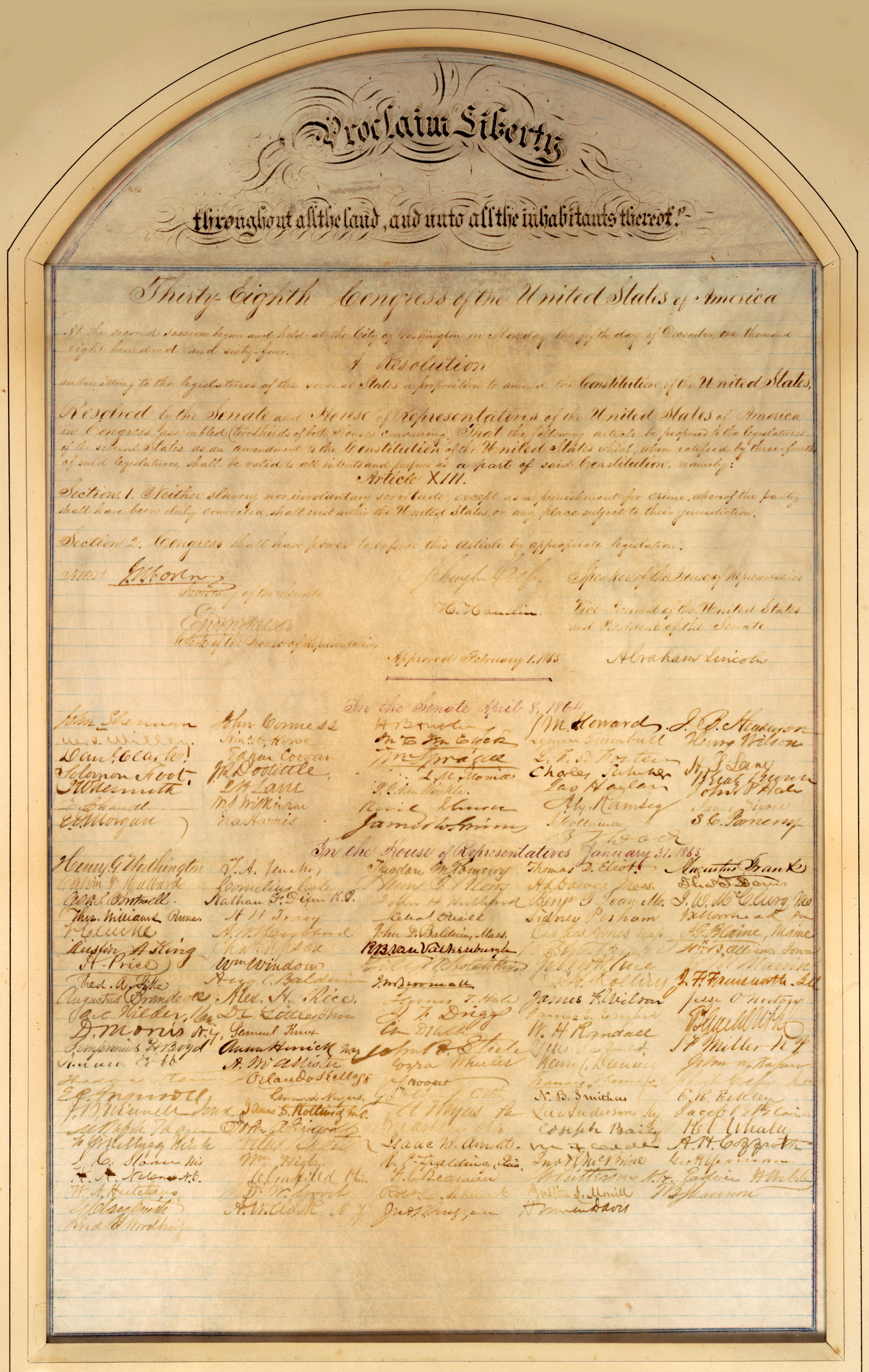 This undated image provided by Cornell University shows the 13th Amendment to the U.S. Constitution. Three historic documents that distinguished Abraham Lincoln's presidency will be put on rare display at Cornell University. An original handwritten copy of the Gettysburg Address and signed copies of the Emancipation Proclamation and the 13th Amendment to the U.S. Constitution will be part of the exhibit at Cornell's Carl A. Kroch Library.
This undated image provided by Cornell University shows the 13th Amendment to the U.S. Constitution. Three historic documents that distinguished Abraham Lincoln's presidency will be put on rare display at Cornell University. An original handwritten copy of the Gettysburg Address and signed copies of the Emancipation Proclamation and the 13th Amendment to the U.S. Constitution will be part of the exhibit at Cornell's Carl A. Kroch Library.NASHVILLE -- President Abraham Lincoln's historic 1863 Emancipation Proclamation will be on display at the Tennessee State Museum in 2013 in a rare trip beyond its home in the National Archives in Washington, D.C.
Gov. Bill Haslam announced the fragile decree's display during a yet-to-be-determined six-day period during the 150th anniversary of its signing.
Lincoln issued the proclamation on Jan. 1, 1863, as the nation approached the start of its third year of bloody civil war.
It declared "that all persons held as slaves" within the rebellious states "are, and henceforward shall be free." While it applied only to blacks held in slavery in the South, Lincoln used it to link preservation of American constitutional government to the end of "peculiar institution."
That eventually led to the 13th Amendment to the Constitution outlawing slavery everywhere in the U.S.
"It is an incredible honor for Tennessee to host the Emancipation Proclamation, a document whose significance to the history of this country, and this region in particular, cannot be overstated," Haslam said.
The "delicate manuscript represents America's recognition that all are entitled to life, liberty and the pursuit of happiness, and we invite people from across the Southeast and the nation to see and celebrate with us the moment our country officially became the land of the free," the governor said.
The national tour of the proclamation is taking place along with a National Archives exhibit, "Discovering the Civil War," which opens at the state museum in Nashville on Feb. 12, 2013, in honor of Lincoln's birthday. The exhibit continues through Sept. 2, 2013.
Because of its fragility, the Emancipation Proclamation can be exposed to light for only 72 hours during its Tennessee stay.
Tennessee will be the only Southern state to display the proclamation as the nation honors the sesquicentennial of the historic event.
Lois Riggins-Ezzell, executive director of the state museum, later told reporters that "the actual document is the most important, but there are numerous, numerous [other] documents in this exhibit."
Riggins-Ezell said that among them are letters blacks wrote to Lincoln, asking, "Am I free, Mr. President?"
Haslam's wife, Crissy Haslam, as well as Honey Alexander, wife of U.S. Sen. Lamar Alexander, R-Tenn., helped push the effort to get the proclamation and the exhibit.
Contact staff writer Andy Sher at asher@timesfreepress.com or 615-255-0550.
